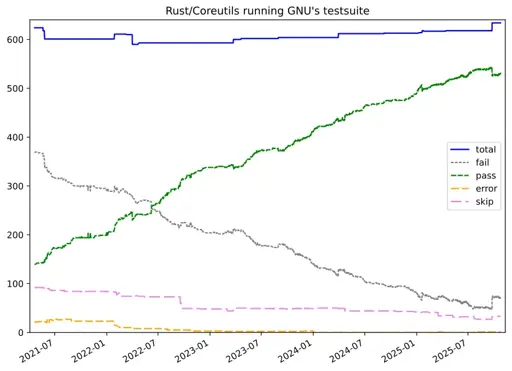The uutils project announced tonight the release of Rust Coreutils 0.3, another step forward for this Rust version alternative to GNU Coreutils that has been attracting a lot of interest lately due to Ubuntu 25.10 now using it by default.
Rust Coreutils 0.3 brings improved GNU test suite compatibility with now passing 532 tests, or nearly an 84% pass rate. There is improved error handling and other updates to better match the behavior of GNU Coreutils… Such as the recently noted date issue breaking Ubuntu 25.10’s unattended upgrades.



Yes, it’s “different”. That is all that it has to offer: it’s “different”. There is no other reason why people might be interested in it.
Why is that the only reason to motivate someone to do such a thing?
Maybe we should take them that they word that they are genuinely think that coreutils would be better if it were written in Rust? Why is that such a radical possibility?
Yes, I have noticed that you are very big on saying what others’ motivations are.
“Take them at their word”
Who? Has there been a survey of contributors?
“Genuinely think that coreutils would be better if it were written in Rust”
I feel like the skill-level of the contributors is high enough that they would not be so naive.
Programs in different languages can compile to the same machine code. Any advantage would be in language constructs. But if you already have an existing C implementation what advantage do you do from a Rust implementation?
I personally write in 3 languages: Rust, C++, and Fortran ( or rarely SPARK). I don’t port my code across languages, because there is no advantage. If I wanted it better, I would work on my existing codebase.
Porting really only helps if the original language was hindering development, deployment or runtime. These arguments don’t really hold with C, a fast, low-dependency language that is more widely used than Rust.